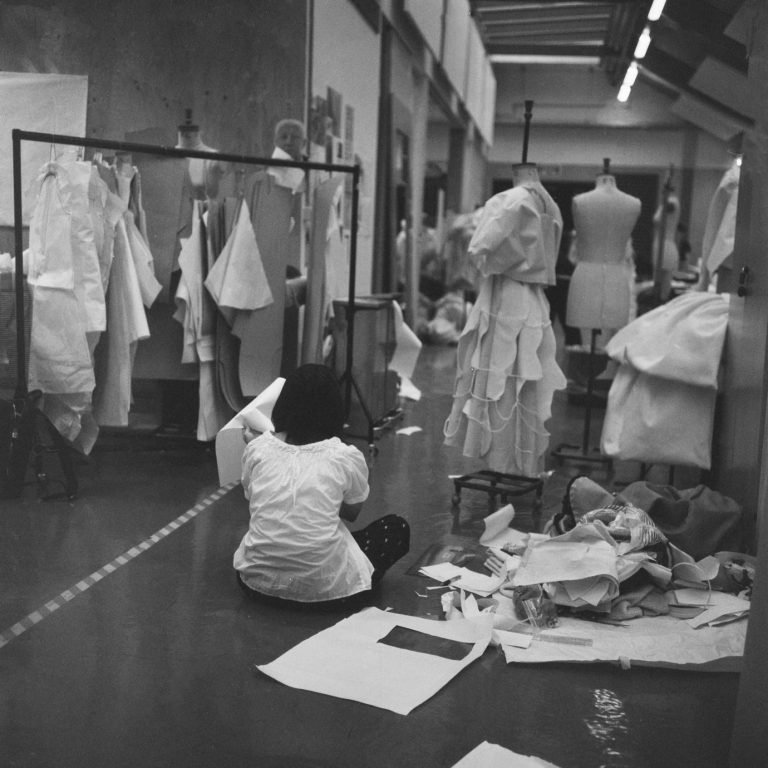Studies say, up to 70% of university students are procrastinators. Responses to 1 Granary polls were up to 90%, affirming that they have a problem with procrastination in creative work. Considering that only 34% state they worked better under pressure and the remaining struggle with the increased anxiety by shortened deadlines, why would anyone consciously avoid working, knowing the psychological aftermath?
“I just don’t do things I should do because I’m scared.”
Against popular opinion, procrastination has nothing to do with laziness or improper time management. Instead, it occurs in the face of a specific task that induces challenging emotions such as anxiety, frustration, insecurity, self-doubt, or resentment. No one would ever procrastinate on fun things. In other words, procrastination happens due to the inability to regulate negative emotions and the feeling of overwhelm. One follower admits: “Whenever I try to tackle everything I have to do, I feel like drowning; then I procrastinate more to avoid facing that feeling, creating a vicious cycle that feeds off of itself.”
“Procrastinating makes me feel not good enough and, like, illegitimate.”
But what causes such strong sentiments towards a task? To some degree, certain character traits and even genetic components determine procrastination. A lack of self-discipline, conscientiousness, and impulsiveness are core personality traits that are either the premise or the situational side effect of procrastination. It seems ironic that perfectionism and the fear of performing “not good enough”, too, can paralyse into not engaging with the task at all and lead to a perpetuation of procrastination. Once in the cycle of doing nothing, the defensive self-protective responses make it even harder motivating oneself to overcome the negative emotions towards the task.
“Procrastination makes me feel like I’m not committed to my work and my goals.”
Whether a chronic or situational procrastinator, pushing off work now and then can quickly evolve into a vicious behavioural cycle. The momentary relief of not having to face the subject of aversion feels like a reward. But it is crucial to keep in mind that self-awareness is vital to procrastination – consciously choosing to do something that has negative consequences makes the phenomenon even more damaging to the psyche. Thus, studies have related procrastination to depression and anxiety, while other research points to psychological distress, negative evaluation, and concerns over one’s public image.
“I try not to feel guilty about it.”
At this point, it might come as a relief to hear that evolution is the scapegoat responsible for the psychological phenomenon. In the face of an emotional threat, the brain responds with the so-called amygdala hijack: The mind is wired to remove the threat immediately, despite the intellect’s awareness that putting off the tasks might increase stress in the future. In addition, Dr. Hershfield, Assistant Professor of Marketing at the New York University’s Stern School of Business, explains that people perceive their future self on an emotional level as another person, which rationalises that the present reward weighs stronger than a future one. In other words: committing to a diet for a fitter future self is great, but indulging in sweets right now is even greater than the feeling of abstaining from pleasures.
“I end up crying or screaming at everyone.”
But one question is yet to be answered: what activity could be worth avoiding a task and risking far worse consequences than the initial negative feelings towards work? For starters, the internet, most notably social media and streaming platforms like Netflix, is among the most stated sources for procrastination. Responding to our poll on any tips for stopping to avoid tasks, a large number of followers said limiting phone usage or simply throwing it out of the window is their best advice for chronic procrastinators.
It is one thing to write an essay under increased pressure and another having to produce creative work. Thus, 81% of our community stated that procrastination affected its work negatively. Of course, some creatives say they are more focused and find more inspiration under the increased pressure. Many, however, suffer from self-sabotage. One follower states, “I feel so much guilt! Why didn’t I use my time to actually progress?” while another admits, “The huge rush at the end affects my health due to not having time to eat or sleep well.”
“We value everything that’s not effective work as procrastination.”
Until today, scholars haven’t fully grasped why the brain acts against better judgment. The good news is that almost everyone has procrastinated at some point in their life. Procrastination doesn’t make for a lousy character, and there is no reason to feel guilty about it. And it is important to know the difference between procrastination and taking necessary mental breaks. “We think we have to be effective and productive all the time, so we value everything that’s not effective work as procrastination,” responded one industry professional. “Maybe most of it is mental breaks. We shouldn’t beat ourselves up for having them when we, in fact, really need them.”
One universal solution for procrastination does not exist. For starters, society should not perceive procrastinating as a bad character trait. Procrastination is about emotions, not conscientiousness or productivity. As much as the behaviour might appear irrational, feelings are never invalid. If one learns how to manage the negative emotions, taking a break does not necessarily have to turn into a vicious cycle. In the end, tomorrow will still be fine!









